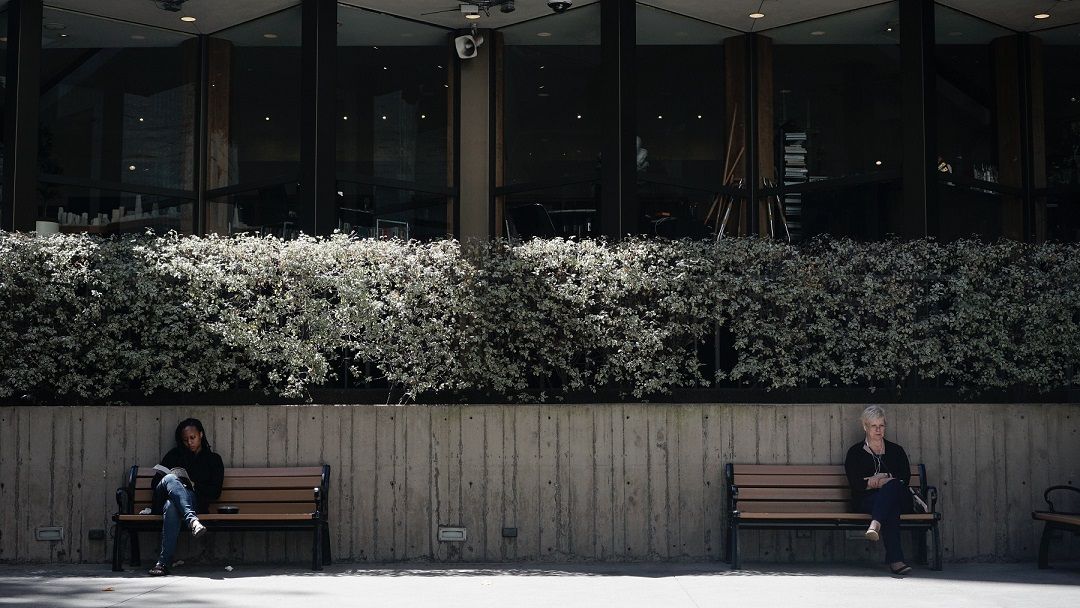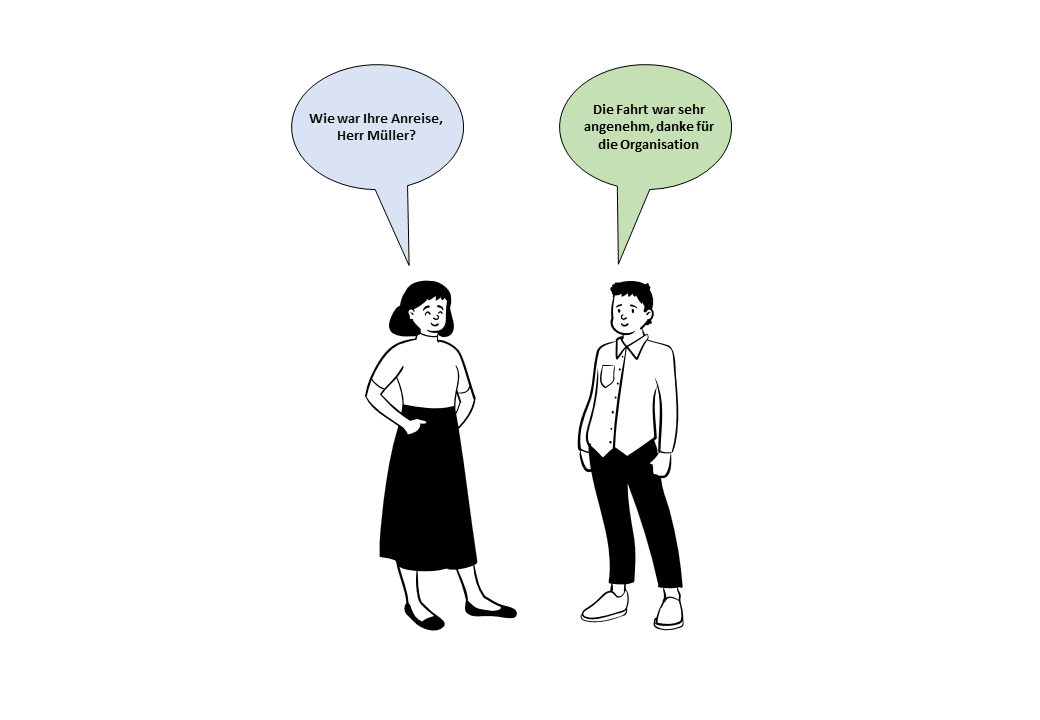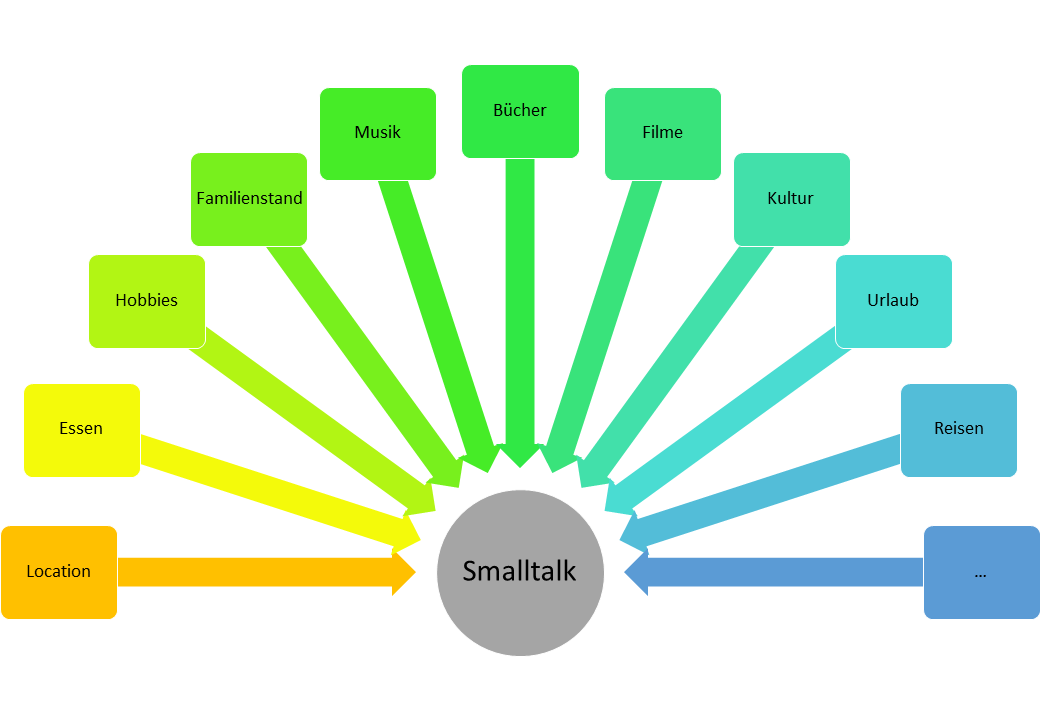Small Chats For A Successful Conversation Starter
Are you afraid of speaking to other people? Here you will find tips and exercises for good small talk

The event of the year is coming up: your company's summer party. This year it will even be a huge event, as the founder is celebrating his company anniversary. All business partners, service providers and customers are invited. Since you have taken on the position of department head this year, this event is of particular importance to you. At this celebration you can show yourself from your best side, make and deepen (business) contacts. But how do you best start a conversation with potential partners? After all, you don't want to fall straight into the house and also want to get to know your conversation partners better in order to be able to assess them.
Small talk is a great way to start a conversation with strangers.
What Is Small Talk?
Small talk is casual, informal conversation. It helps to get in touch with strangers. Small talk is not about deep conversations. It serves to break the ice, to make (professional) contacts and sometimes also to loosen up an uncomfortable situation. Especially at work, small talk can help to warm up to a casual, "inconsequential" conversation with the other person and pave the way for a successful technical discussion.

Where Do We Need Small Talk?
A little chat can take place anywhere and we can include it anywhere. Whether it's shopping, at the cash register, in the park, in the gym, at the doctor's or at the neighbor's birthday party.
But small talk is an indispensable part of professional life. It's not just about a nice chat with colleagues in the coffee kitchen. Even a good interview begins with a short, introductory conversation. This should help to relieve the applicant's tension, create a pleasant atmosphere and the HR managers get a first impression of the potential employee.
Small talk also helps to loosen up the situation at trade fairs, events, meetings and Christmas parties, to win over potential business partners and to get to know people.
In the best case, we remember what we talked about with our conversation partners. If we meet again later, we can refer to our last conversation, so we have a great conversation starter and collect bonus points from our counterpart.
Bad Small Talk
There's a difference between good small talk and bad small talk. By bad small talk we mean conversations that are monotonous and/or one-sided. If our interlocutor only answers "yes" and "no" to questions, it becomes difficult to have a fluent conversation. Then we should think about whether it is due to our question or whether our interlocutor simply does not feel like small talk.
What we should absolutely avoid:
- closed questions (yes/no questions)
- clumsy "Pick Up Lines"
- "interrogation"
- showing disinterest (e.g. avoiding eye contact, "staring around wildly")
- hold a monologue
- bring up political issues
- exude superiority
- personal and professional problems
- gossip
- sexism
- religious views
Tips For Good Small Talk
Now we know what not to do when making small talk. If we have to pay attention to so many things now, how can we still start a casual conversation? Don't worry - with a little practice it's not that difficult!
To make small talk easier and more successful, here are a few helpful tips:
- open and friendly posture and facial expressions
- appear authentic
- make compliments
- maintain eye contact
- ask open-ended questions (encourage interlocutors to talk)
- talk about the location we are in
- talk about the buffet (food).
- hobbies
- find things in common (marital status, music, books, movies, etc.)
- ask how the arrival was and if the hotel is ok
- direct address by name
- show the conversation partner by nodding that you are listening with interest
- active listening
- ask questions
These are already many and helpful clues as to what small talk can look like. Of course, the topics always depend on the situation and the place.

Now, of course, there are also people for whom it is not so easy to approach (strange) people and start an impromptu conversation with them. But especially for introverts, small talk is a good way to make contacts. It is normal for this to be a hurdle at the beginning.
But making small talk can be practiced:
- at the supermarket checkout, speak to the person behind you
- talk to other dog owners when you go for a walk
- in the restaurant / café, ask the person at the next table what they are eating or drinking
- ask for help in the parking lot to lift the heavy box into the trunk
- practice posture and facial expressions in front of the mirror
- before an event, meeting, or interview, write down different topics to start a conversation with
We see there are enough opportunities to hold small talk. This takes some effort at first, but the more we talk to people, the more confident we become and the more comfortable we feel in these situations.